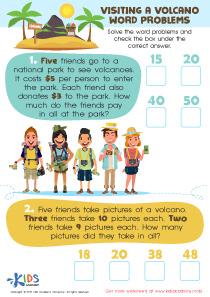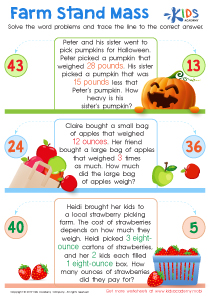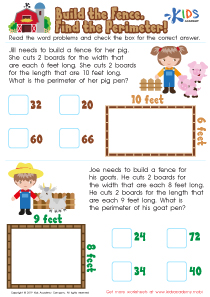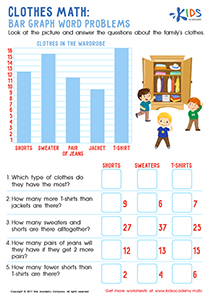Problem-Solving Skills Normal Addition and Subtraction Word Problems Worksheets for Ages 3-9
14 filtered results
-
From - To
Unlock your child's potential with our engaging "Problem-Solving Skills: Normal Addition and Subtraction Word Problems Worksheets" designed for ages 3-9. These worksheets provide a fun and interactive way to enhance critical thinking and mathematical skills through relatable, real-life scenarios. Each problem encourages children to apply their understanding of addition and subtraction in a meaningful context, fostering a deeper grasp of numbers. Ideal for home or classroom use, our resources help support differentiated learning, ensuring that each child can progress at their own pace. Jumpstart your child’s math journey and build a strong foundation for future learning with our thoughtfully crafted worksheets!


Tricky Problems Worksheet: Part 1


Enrichment -2 Step Word Problems Worksheet
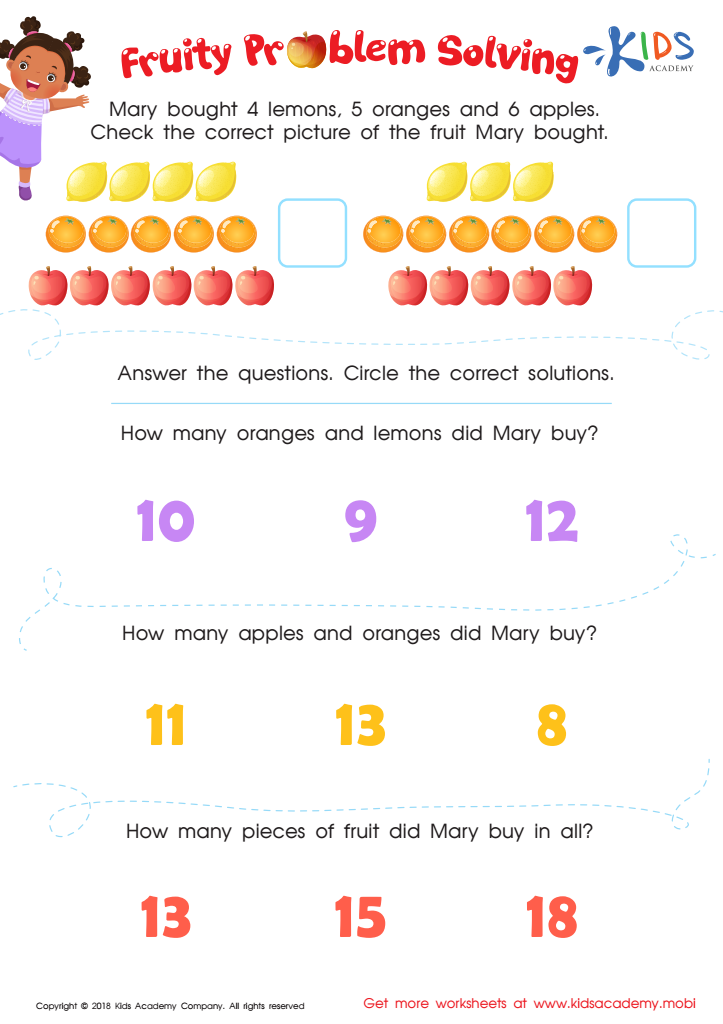

Fruity Problem Solving Worksheet


Tricky Problems Worksheet: Part 2
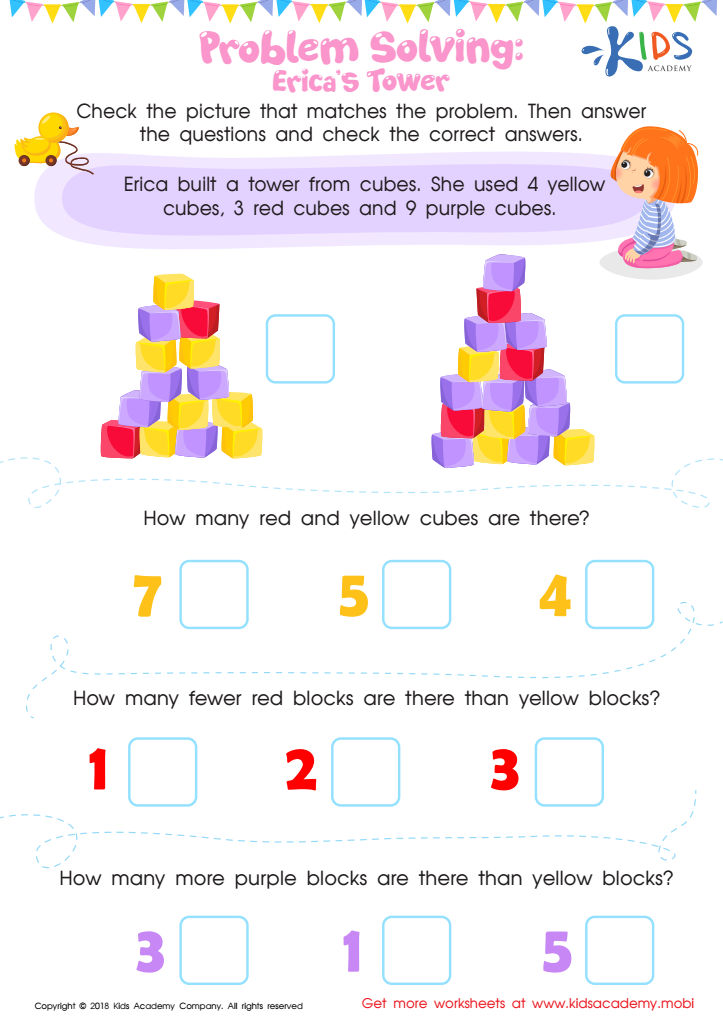

Problem Solving: Erica's Tower Worksheet
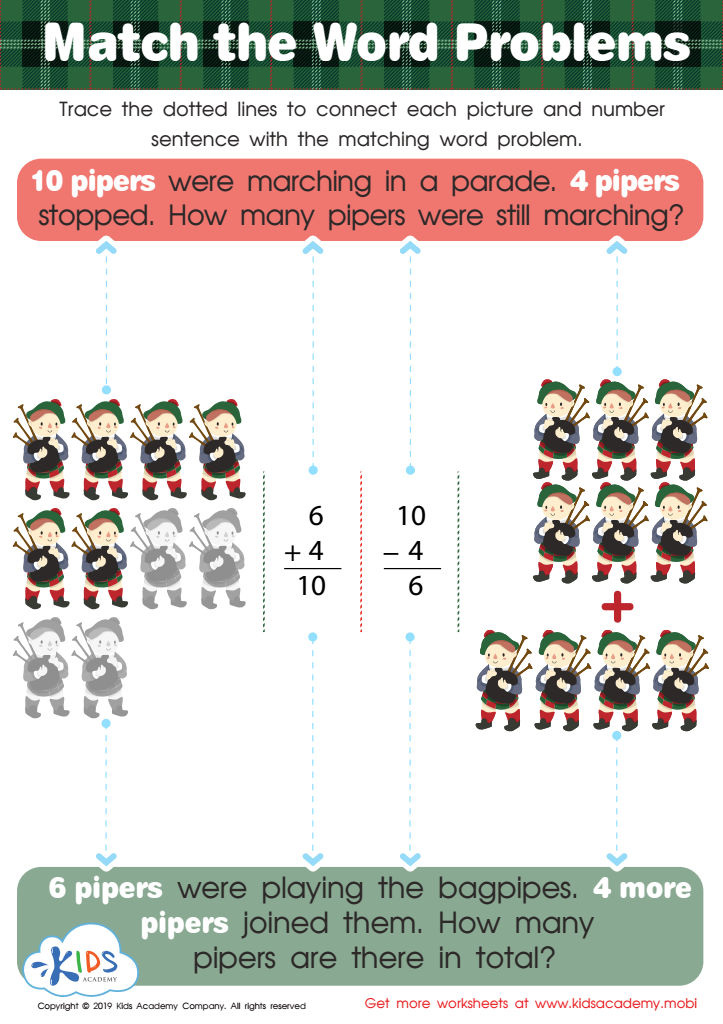

Match the Word Problems Worksheet
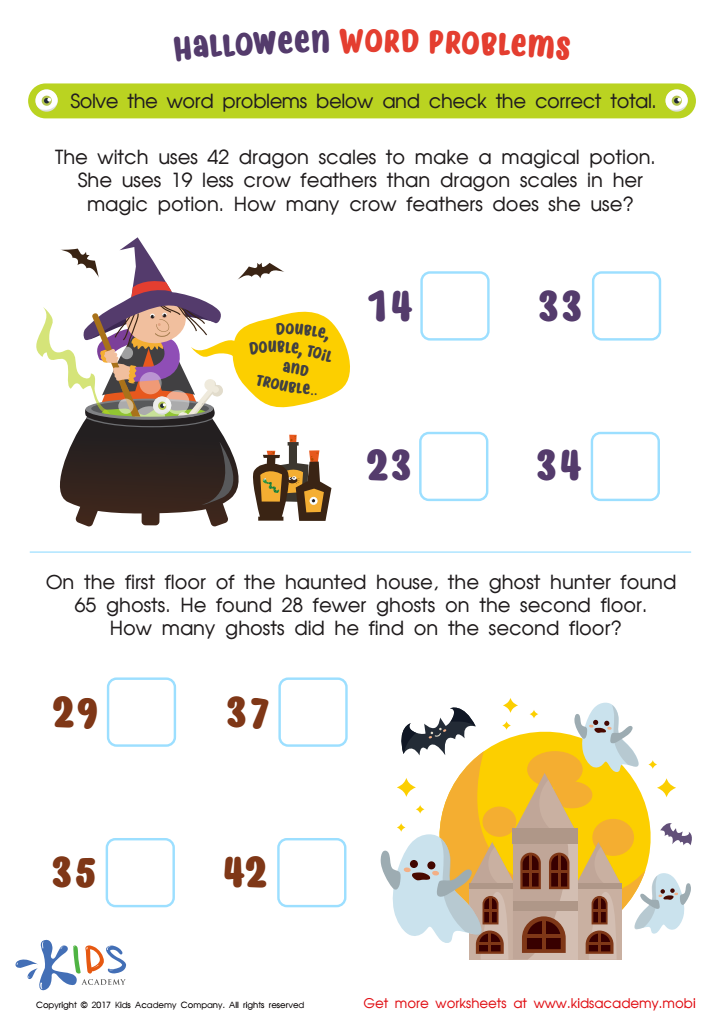

Halloween Word Problems Printable
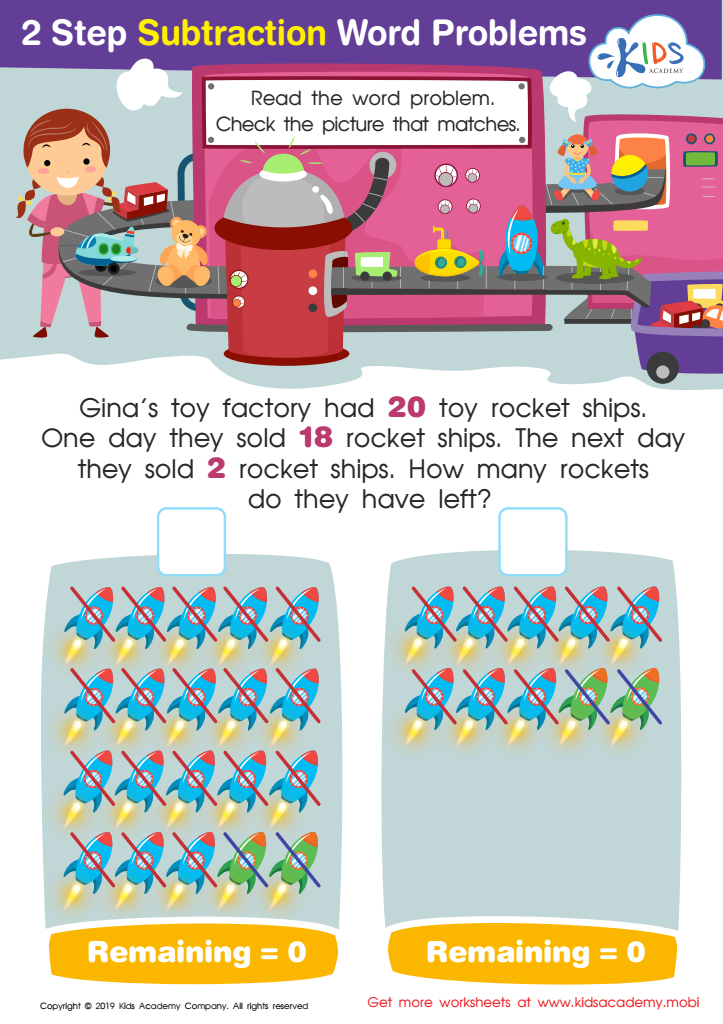

Step Subtraction Word Problems Worksheet
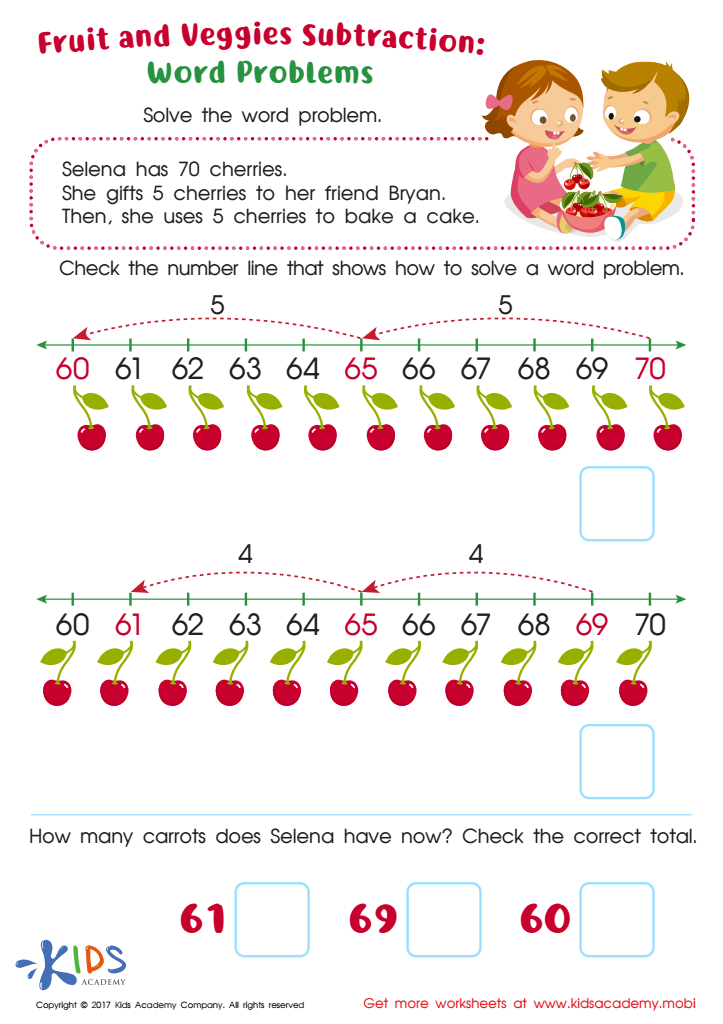

Subtraction Word Problems Free Printable
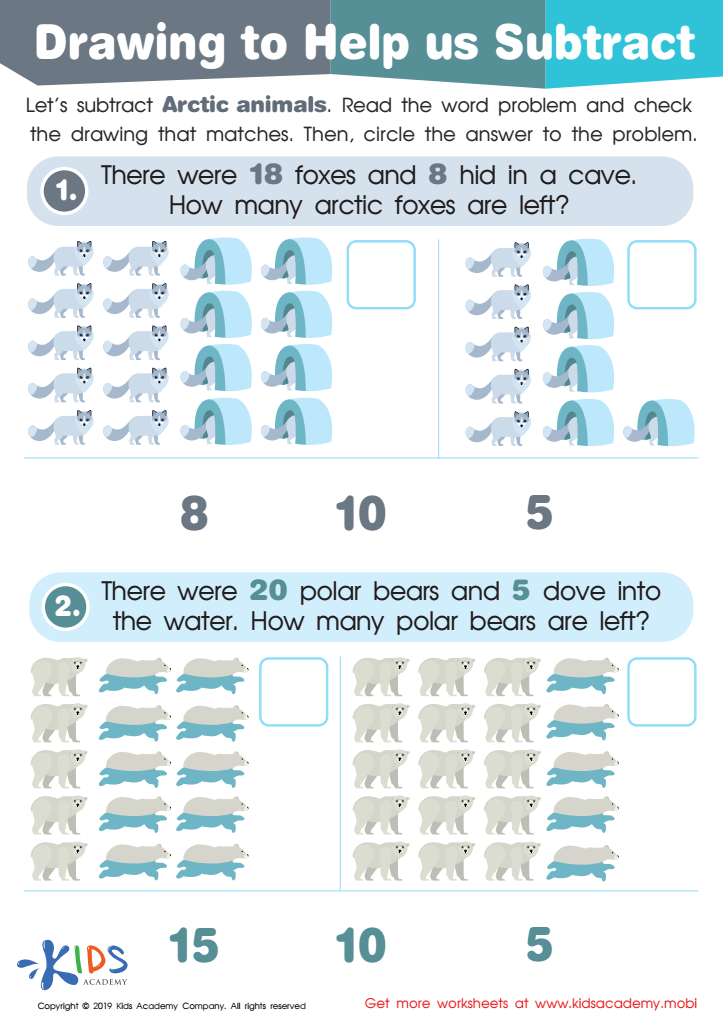

Drawing to Help Us Subtract Worksheet


Solve the Problem: Trick–or–treating Worksheet


Word Problems: Assessment 2 Worksheet


Addition and Subtraction: Word Problems Worksheet
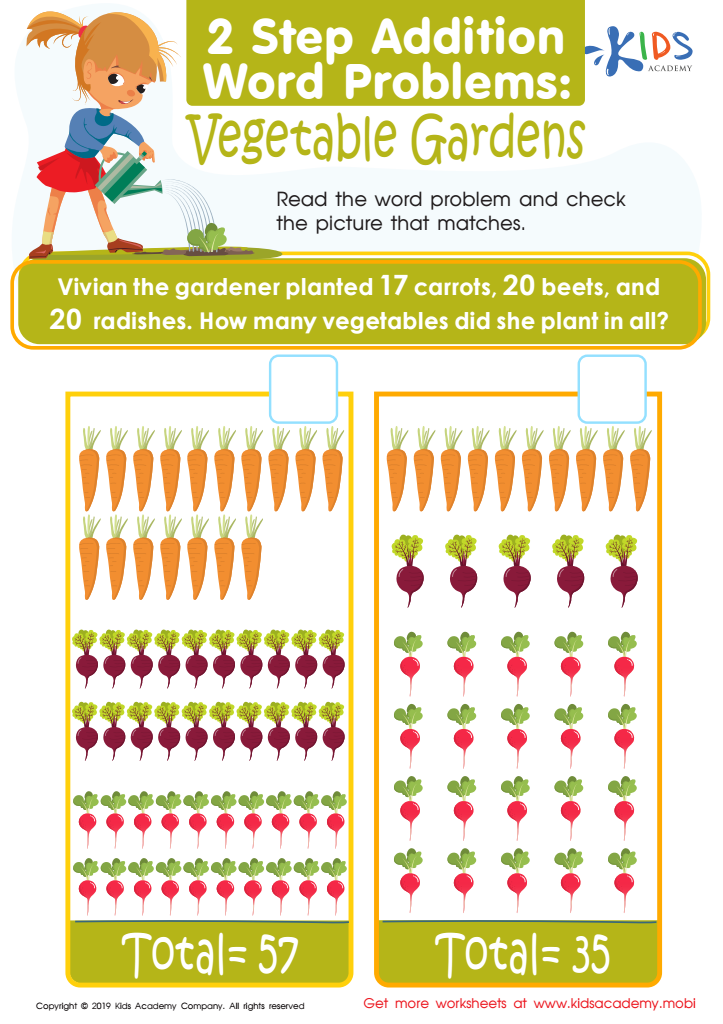

Vegetable Gardens Worksheet
Parents and teachers should prioritize problem-solving skills in normal addition and subtraction word problems for children ages 3-9 because these foundational abilities are critical for cognitive development and real-life applications. At this age, children are beginning to understand numbers and basic mathematical concepts; developing these skills through word problems fosters not only numerical fluency but also critical thinking.
Word problems encourage children to interpret language and translate it into mathematical equations, helping them to make connections between math and everyday situations. This process lays the groundwork for advanced mathematical reasoning and enhances comprehension skills, as students learn to analyze a scenario, identify relevant information, and make logical deductions.
Additionally, developing problem-solving skills builds resilience and confidence. When children encounter challenges in problem-solving, they learn persistence and develop a growth mindset, recognizing that difficulties are a chance for learning rather than a reason to give up. This, in turn, contributes to their overall academic success and preparedness for future studies.
Finally, these skills have broader implications beyond mathematics, as they promote critical life skills such as decision-making, communication, and collaboration. Thus, fostering problem-solving skills in early childhood sets the stage for lifelong learning and problem-solving capabilities.
 Assign to My Students
Assign to My Students








